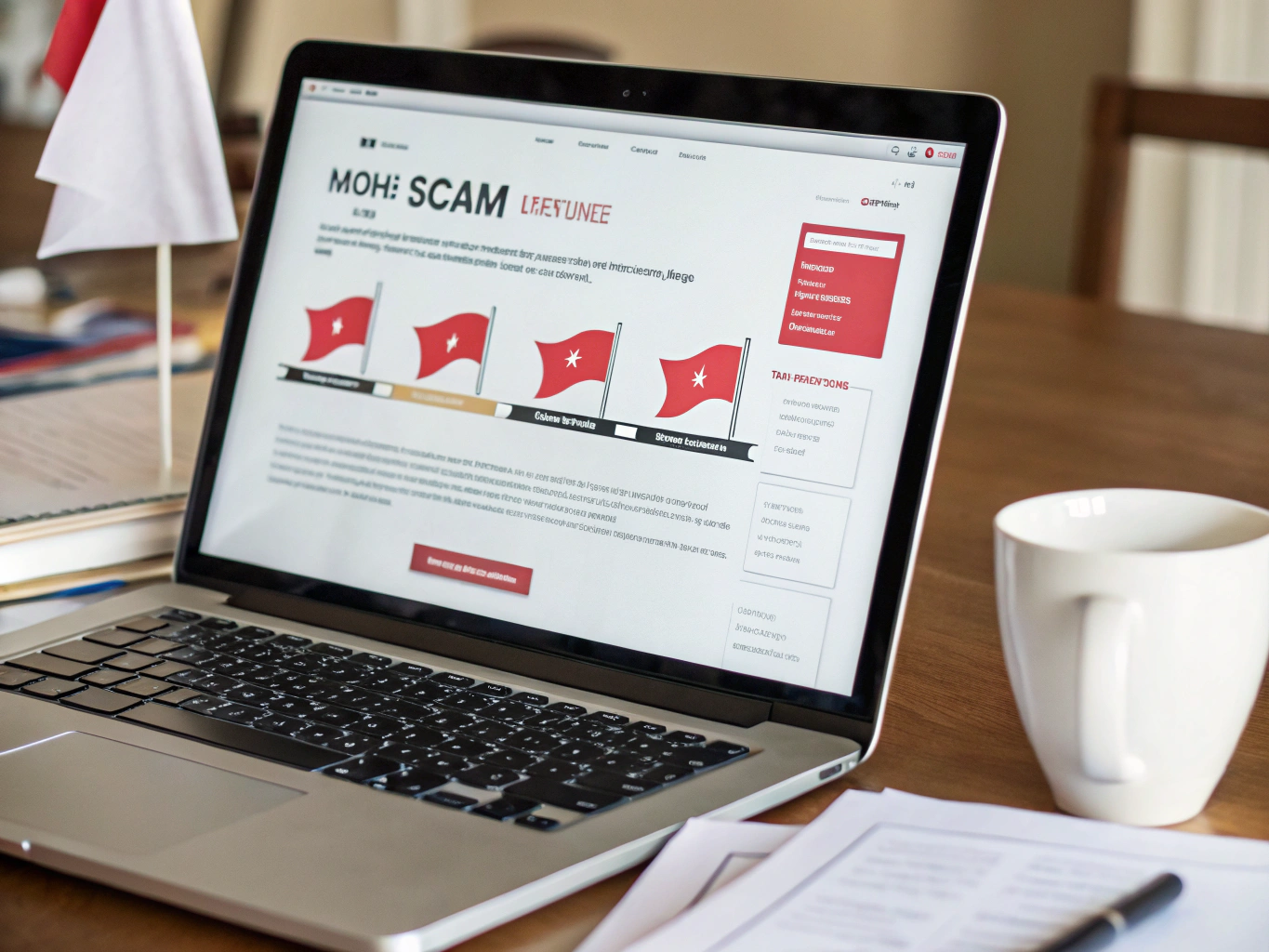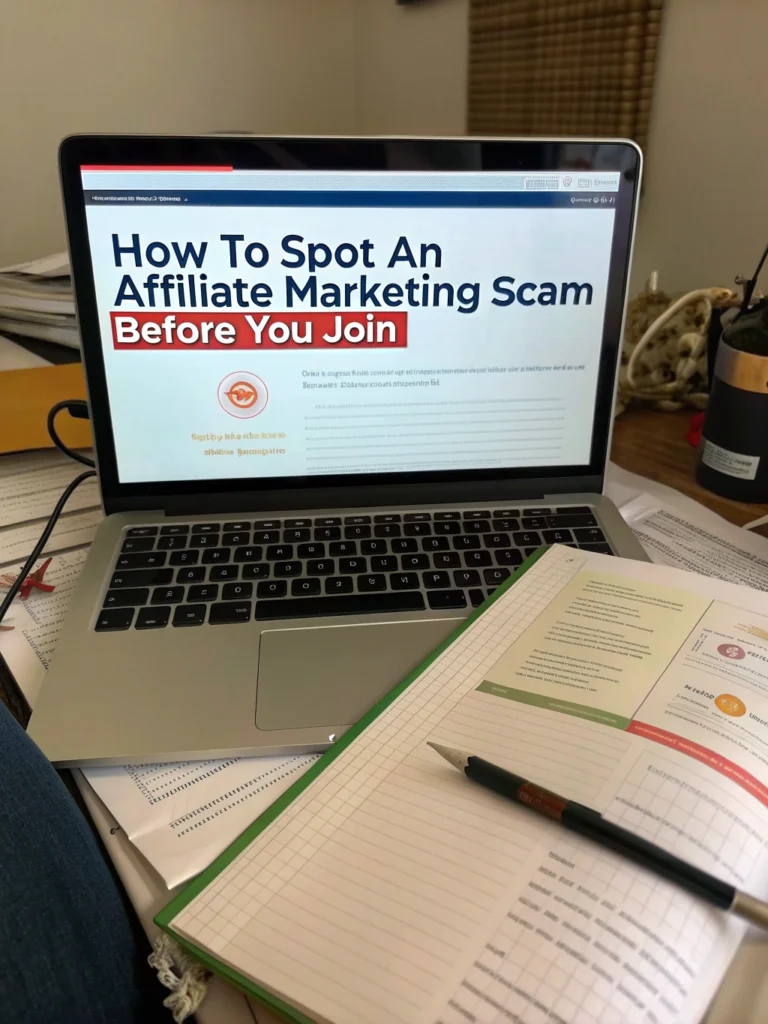How to Spot an Affiliate Marketing Scam Before You Join
Affiliate marketing is a promising way to build income streams, but it comes packed with pitfalls if you don’t know what to watch for. One question that’s always bubbling up: how do I avoid falling for an >affiliate marketing scam?
Let me break it down in no-nonsense terms, so you get the real deal.
What Exactly Is an Affiliate Marketing Scam?
An >affiliate marketing scam is any program that promises you quick riches but hides shady practices. These scams either steal your time, money, or both. They often charge high upfront fees or claim guaranteed income with zero work.
But here’s the catch: not all sketchy offers are wildly obvious. That’s why learning >how to spot affiliate scams is your first line of defense.
How to Spot Affiliate Scams: Watch for These Warning Signs
Here are some telltale affiliate program red flags every newbie should know:
- Promises of "get rich quick" with little to no effort. Nobody builds passive income overnight without hustle.
- Huge upfront fees just to “join” the program. Legit affiliate marketing programs rarely charge high fees for basic access.
- Vague or no info about the company behind the offer. Transparency is key. If you can’t find a verifiable business address or contact details, that’s a bad sign.
- Pressure tactics – “limited time offer,” or “only a few spots left!” Scammers rush you so you don’t get time to think.
- Commission structures that don’t add up or are overly complicated. If you can’t easily figure out how you make money, steer clear.
- Lack of product or service value. If the product itself seems low quality or doesn’t exist beyond a website, then it’s almost certainly a fake.
How to Detect Fake Affiliate Offers Before They Cost You
Being skeptical is your secret weapon. To detect fake offers:
- Search for honest user reviews outside the website itself.
- Use trusted affiliate marketing communities to ask if anyone’s heard of the program.
- Confirm they provide real promotional materials and training — scammers often don’t.
- Cross-check with affiliate networks like ClickBank, ShareASale, or Amazon Associates. Legit programs usually appear on these platforms.
In fact, one resource I always recommend is the >Affiliate Marketing Essentials Book: From Zero to Passive Profit . It walks you through everything — from identifying fraud to launching your affiliate journey safely.
Pro Tips to Avoid Affiliate Marketing Fraud
Here’s how to keep your head and cash protected:
- Start with free training from trusted sites rather than paid programs.
- Always read the fine print before signing up anywhere.
- Check if the affiliate program offers monthly recurring commissions — that’s a sign of legit product value.
- Avoid programs that force you to recruit others aggressively — sounds like a pyramid scheme.
- Set realistic goals; understand that affiliate marketing needs patience.
Want more legit advice? The >Affiliate Marketing School: From Zero to Passive Profit is a solid next step to sharpen your skills and avoid pitfalls.

Legit Affiliate Marketing Tips That Actually Work
Let’s keep it 100. Legit affiliate marketing is about real relationships and creating value:
- Pick products you believe in and would actually use.
- Focus on building an audience who trusts you.
- Be upfront and honest about your affiliate links.
- Diversify your income streams — don’t put all your eggs in one basket.
- Track your performance and tweak what’s not working.
To get started with proven strategies, the two eBooks from eBookBusinessClub are a great investment:
- > Affiliate Marketing Essentials Book: From Zero to Passive Profit (Your roadmap from newbie to pro.)
- > Affiliate Marketing School: From Zero to Passive Profit (Step-by-step training to scale faster.)
FAQs About Affiliate Marketing Scams
Q: How common are affiliate marketing scams?
A: Unfortunately, quite common. The low barrier to entry makes it easy for scammers to set up fake schemes, so staying vigilant is key.
Q: Can I trust paid affiliate marketing programs?
A: Not all paid programs are scams, but many are. Research is everything—read reviews, check complaints, and verify who’s behind the program before you pay a dime.
Q: What if I’ve already paid for a scam affiliate program?
A: First, try to get a refund. Then, learn from the experience and use that knowledge to spot >affiliate marketing scam warning signs next time.
Q: How long does it take to make money from affiliate marketing?
A: It isn’t instant. Most income starts flowing after consistent effort, smart strategies, and building trust with your audience over months.
Closing Thoughts
Knowing >how to spot affiliate scams and understanding affiliate program red flags empower you to dodge the traps and start building legit income online. Your success won’t come from shortcuts or shady promises but from smart moves and reliable resources.
Get started right by grabbing the >Affiliate Marketing Essentials Book: From Zero to Passive Profit, and then level up with the >Affiliate Marketing School: From Zero to Passive Profit. That’s your blueprint for avoiding scams and getting on the path to real affiliate marketing success.
For more winning tips and guides on productivity and business growth, explore our blog and check out these resources:
- Top Productivity Books to Boost Efficiency
- Supercharge Your Slack Productivity PDF Guide
- How to Make Money on Amazon in 2025 – Ultimate Guide for FBA & Affiliates
Your journey in affiliate marketing starts with smart research. Avoid scams, trust proven strategies, and use solid tools — and you’ll thank yourself one day with real profit rolling in.

